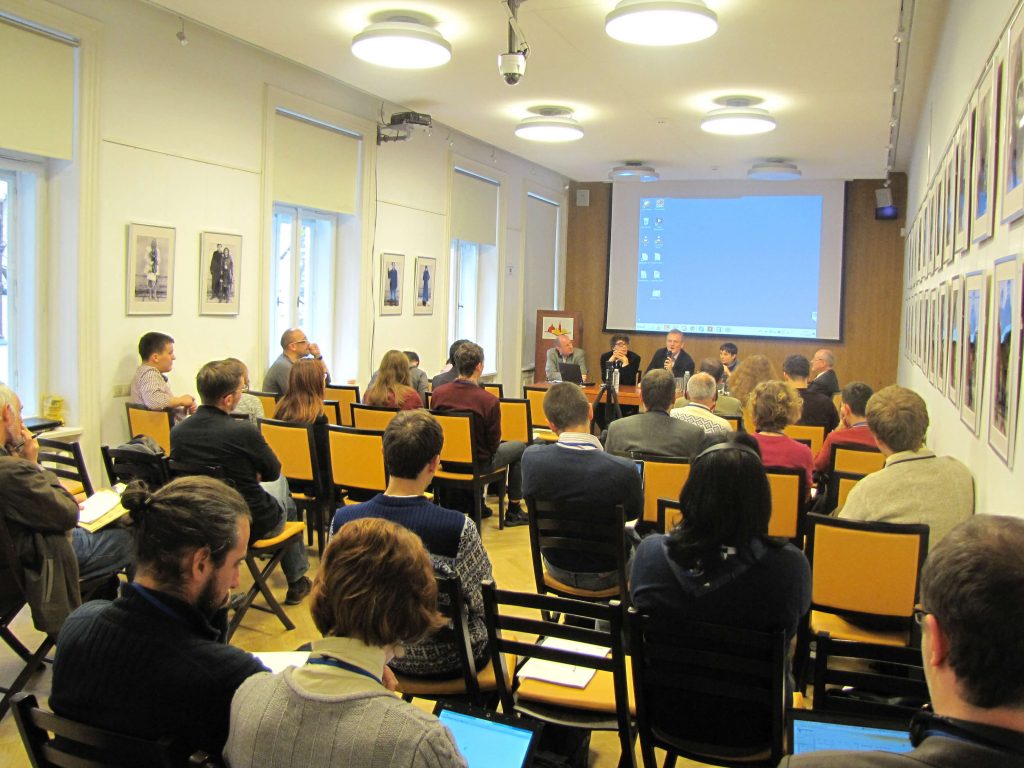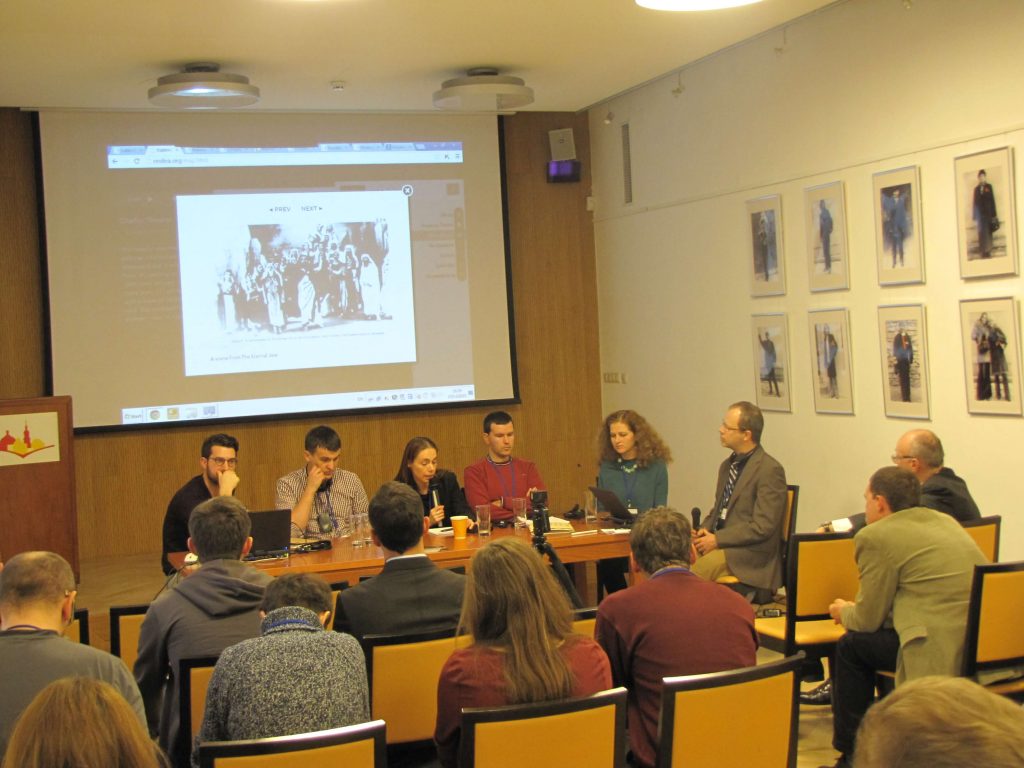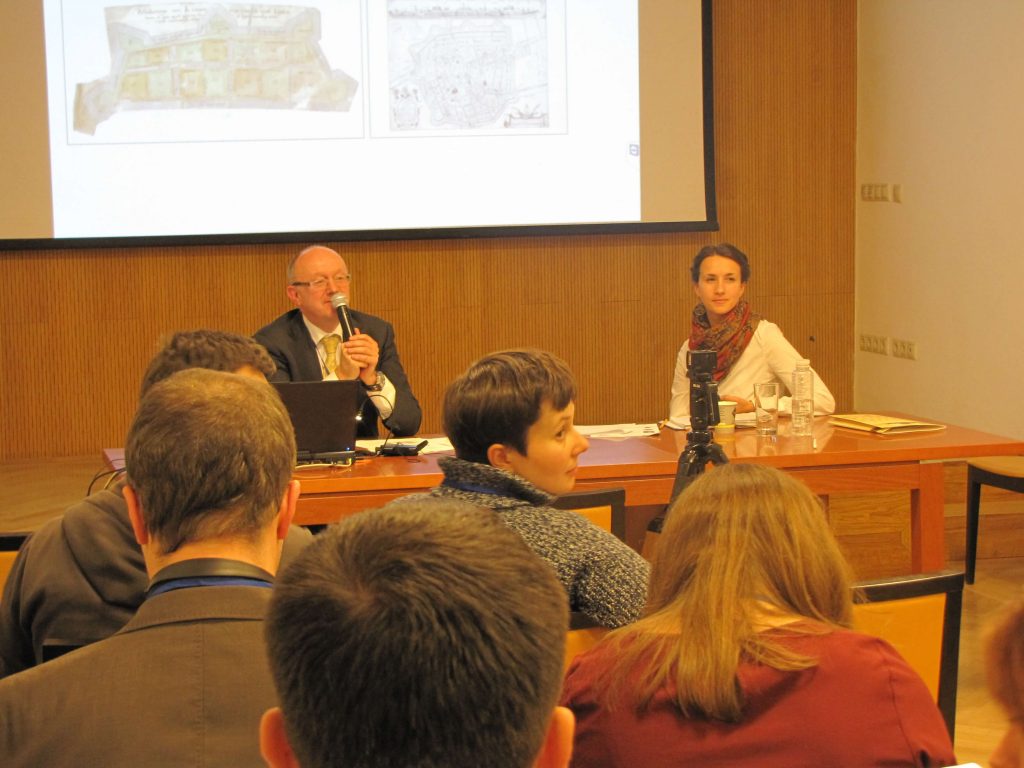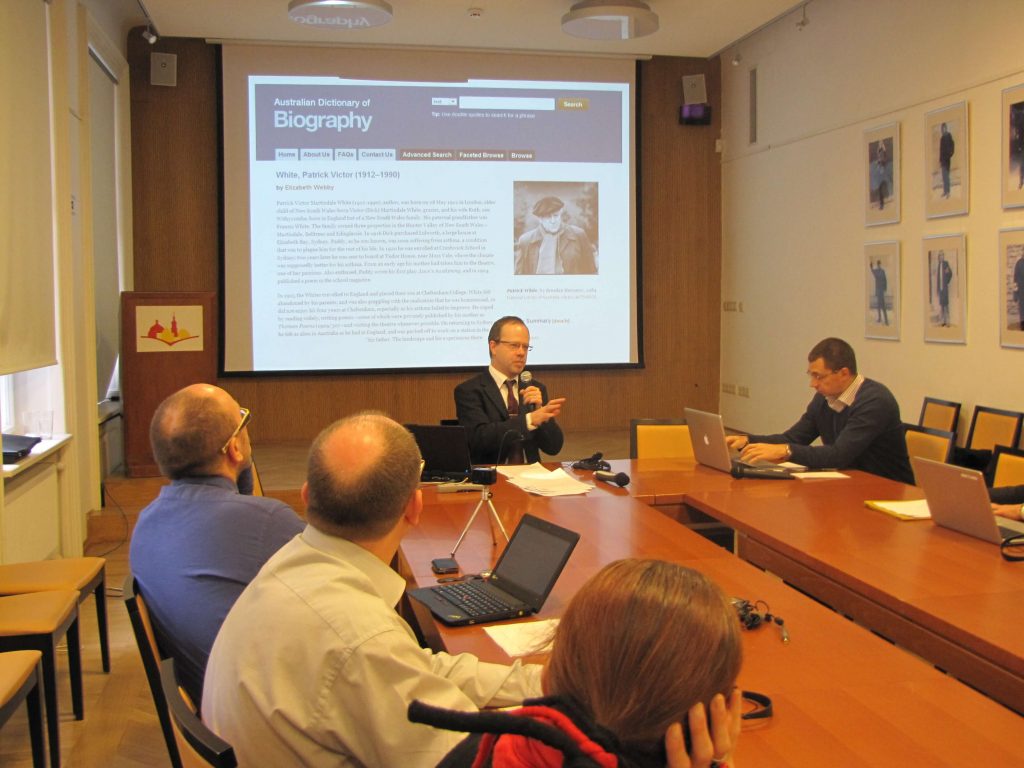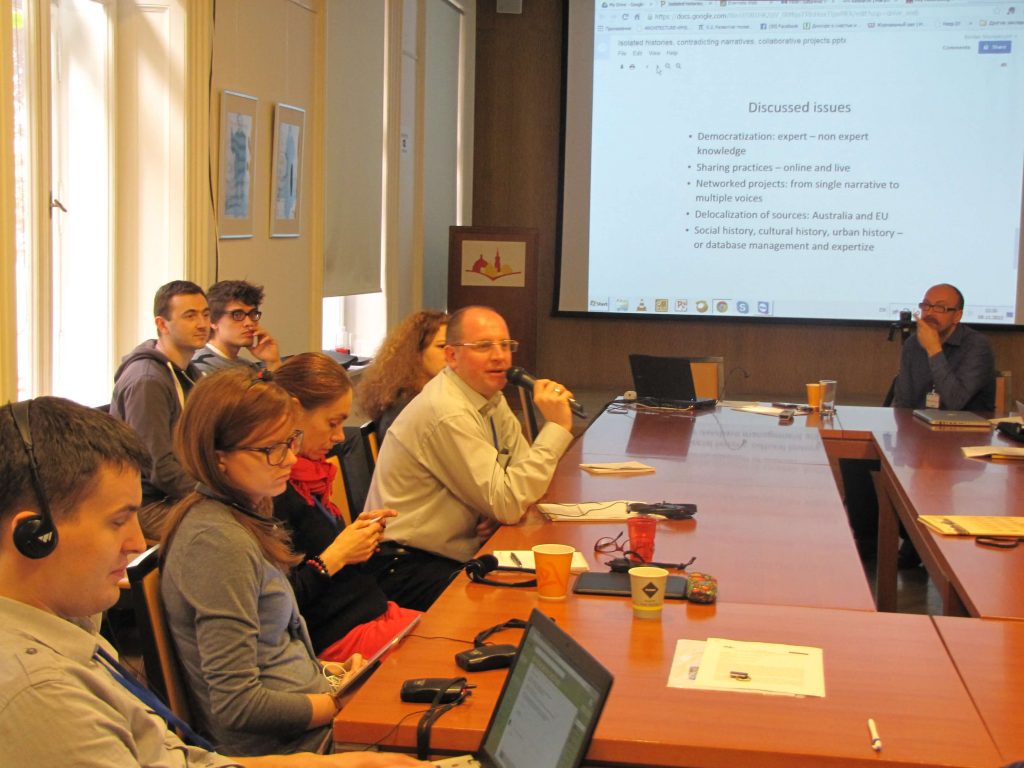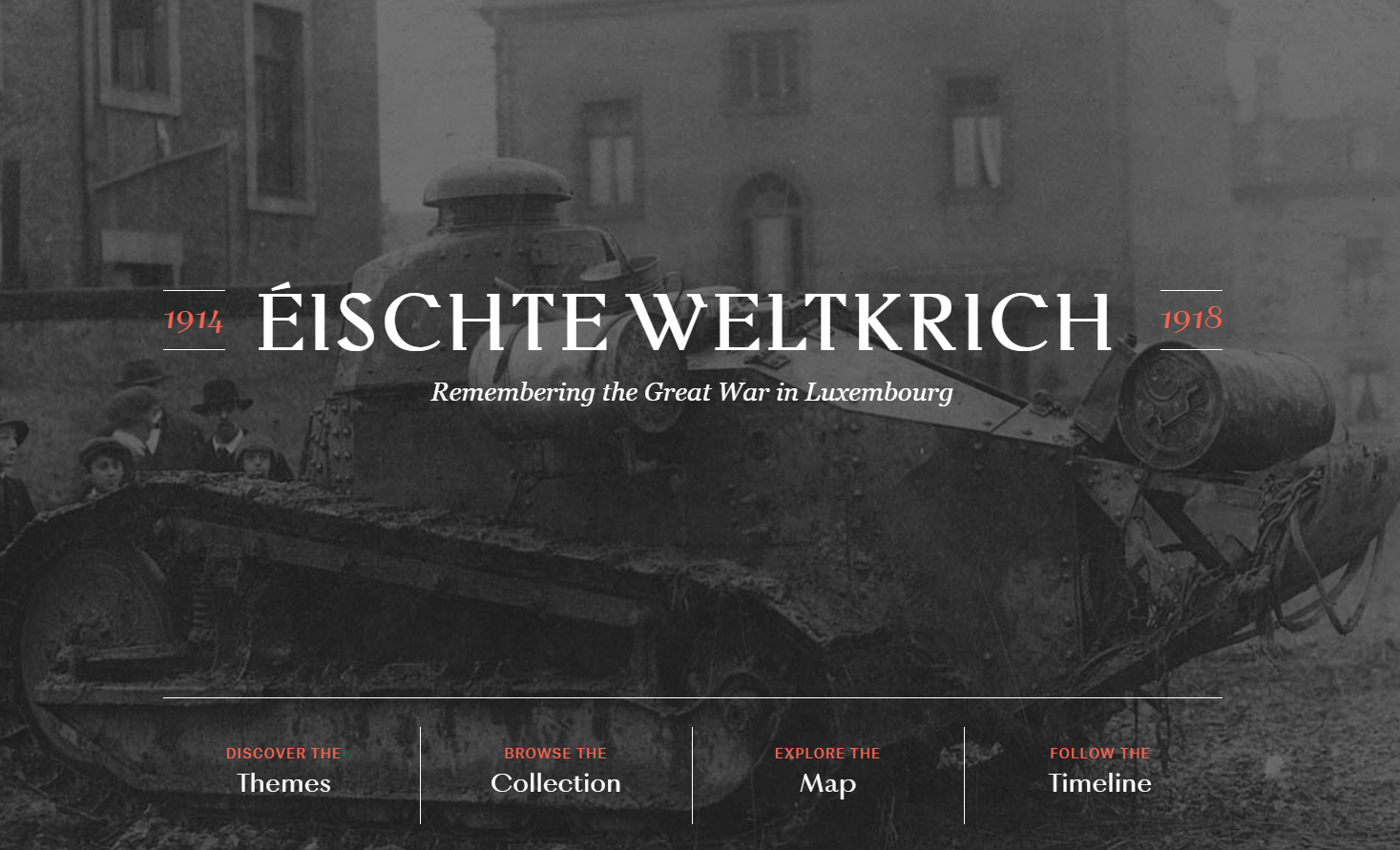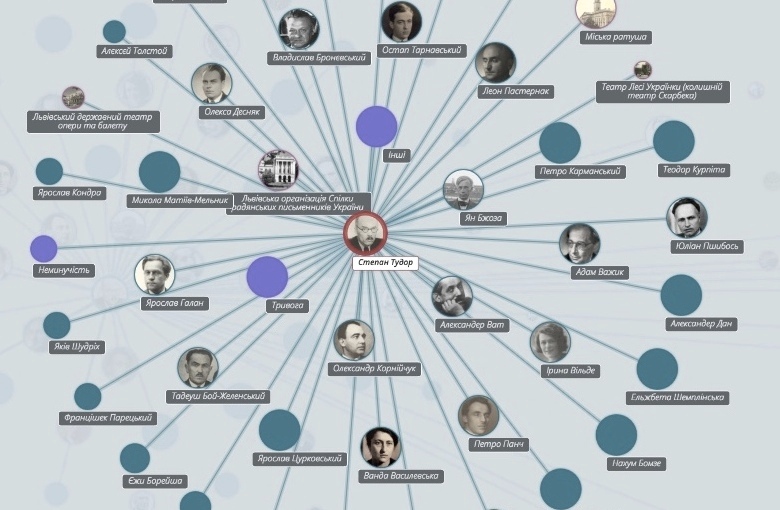The Digital and the Visual: New Approaches to Urban Studies Research of East Central Europe
November 7-8, 2013
Center for Urban History, Lviv
The emergence and rapid development of Geographic Information Systems (GIS) and multi-media technology has produced a dynamic impact on modern life, inserting itself into every aspect of daily existence. These technologies, notwithstanding the degree to which they have served as sophisticated study tools in the investigation of the past and the rendering of that historical research in innovative fashion, have yet accomplished so much more. They also have had a direct effect on the research itself, its methodology and thematic focus, as well an ability to alter the perception of an audience. "Digital History is the digital rendering methodology of the spatio-temporal data of historical movements, social and ethnic groups, linguistic dynamics, and putative geography. Urbanistics and Urban Studies - employing the new research tools and methods proffered by digital history - occupy a discrete place within this research structure, and assist the pursuit of multiple lines of inquiry and multi-cultural urban histories in an exacting, and non-linear fashion.
Modern research is able to work in new media in the formation of digital libraries, archives, cultural heritage data bases and museum collections, and participate in the creation of digital historical reconstructions employing the combined efforts of scholars in the humanities, IT programmers, designers, and other specialists. The digital story involves not only novel forms of the accumulation and transmission of historical knowledge, but also new approaches to the organization of the academic community and educational environment.
Questions and debates abound concerning this dynamic process. For instance, in what way does the emergence of digital technology influence the structural development and dissemination of historical information? What influence does the technology have on the functioning of scientific institutes and communities domestic and international? Do "new media" affect the method of historical research, or only the manner in which this research is presented? Does the appearance of supplementary, occasionally excessive, resource materials stimulate new research approaches or is it simply the accretion of material? In what way does the multiplication of digitized research projects on the internet - yet another new archival resource - influence a historian’s work with source materials? Does the World Wide Web play a significant role in overcoming disparities and assist in the exchange of differing methodologies in historical research? How do the methods and tools of digital history affect the processes of deconstruction of extant narratives and the creation of new narratives? Has the structure of historical narrative been altered in the era of the hypertext and its combining of various media – text, photography, video, and audio? Turning our attention to fully-realized digital and interactive urban studies projects, what can we say about changes in the methodology of historical research and what exactly are those changes? Correspondingly, what is the potential of "digital history" in our own region and how does this influence changes within the historians’ scientific paradigm? Finally, what challenges and advantages do digital histories impart upon the field of urban studies?
The workshop is a forum for the consideration of local efforts and the global relevance of the use of new forms of media and geo-instrumentation in East Central European Urban Studies research. The new technologies have intensified to a remarkable degree the development of ongoing studies and the formulation of new digital historical projects. The presentation of designated projects will serve not merely to focus the discussion, but will further provide opportunity to examine the potential as well as the challenges encountered during the various stages of this type of project. This workshop is the first in a series to be offered at the Center for Urban History with the stated objectives of establishing a platform for the exchange of experience, and for the facilitation of collaborative projects employing digital history methodologies in the urban studies research of Central and Eastern Europe.
The workshop will be conducted in English (with translation) and Ukrainian.
Organized by:
The Center for Urban History of East Central Europe
With support from:
The European Association for Digital Humanities
Credits
Сover Image: The Newest Detailed Plan of the Royal Capital City of Lwow, 1892. Collection of Ryszard Hubisz/ Urban media archive

